W. Charles Bennett ’74 is a by-the-book guy, a straight-laced forensic accountant who had witnessed some injustices and wanted to set the record straight.
 Early in his career, he investigated white-collar crime for three years as an FBI special agent, then moved to the Federal Emergency Management Agency, where for 14 years he conducted fraud investigations related to disaster cleanups. But it was in his work as a certified public accountant and consultant to professional sports organizations and figures where he ran into some situations that didn’t sit right with him.
Early in his career, he investigated white-collar crime for three years as an FBI special agent, then moved to the Federal Emergency Management Agency, where for 14 years he conducted fraud investigations related to disaster cleanups. But it was in his work as a certified public accountant and consultant to professional sports organizations and figures where he ran into some situations that didn’t sit right with him.
He has written a book to give his version of the stories and exonerate a few former colleagues whom he thinks were treated badly in the news media, largely because the whole story didn’t get told. “Dirt Under the Cap,” a self-published tome that came out last fall, is Bennett’s attempt to fix things. The title emanates from Bennett’s audit of the National Basketball Association’s salary cap, one of several stories he tells.
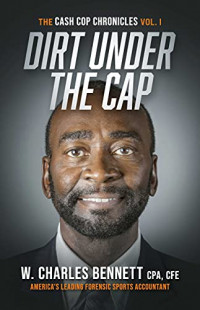 His book has been 20 years in the making. Back then, Bennett and Charles Grantham, the former executive director of the National Basketball Players Association, were interviewed at length by two journalists for a book about struggles in the association. But the writers were primarily focused on events that led to Michael Jordan’s second retirement from basketball in January 1999.
His book has been 20 years in the making. Back then, Bennett and Charles Grantham, the former executive director of the National Basketball Players Association, were interviewed at length by two journalists for a book about struggles in the association. But the writers were primarily focused on events that led to Michael Jordan’s second retirement from basketball in January 1999.
“This was way too much embellishment, and so we decided not to do that,” Bennett said. So he and Grantham – who had been investigated by federal agents on a separate matter – considered writing their own book. Although Grantham was never charged, he decided against writing one, telling Bennett that doing so “would just cause some more pain.”
All these years later, it still bugged Bennett that Grantham had been wrongly accused. He also was troubled that the reputation of basketball star Isaiah Thomas, who bought the Continental Basketball Association, was, in Bennett’s view, unfairly sullied when the association went bankrupt. Bennett, who was a consultant to Thomas, decided to write about that too.
He started the book around 1999 and worked on it intermittently until 2020, when a friend challenged him to finish it.
“I’ve kept a diary for probably 40 years as to what I do every day,” and that eased the writing process. “I just basically started writing from my calendar. … The editing part was the toughest part. What did I miss? What should I not include? And what’s not clearly explained?”
He said the experience taught him that the most important ingredient for someone to write a book “is the motivation. … That’s what will help you bridge the gap between the concept and the actual, published document.”
DePauw Magazine
Spring 2022
 Ever-changing challenges
Ever-changing challenges New approaches
New approaches First Person by Samuel Autman
First Person by Samuel Autman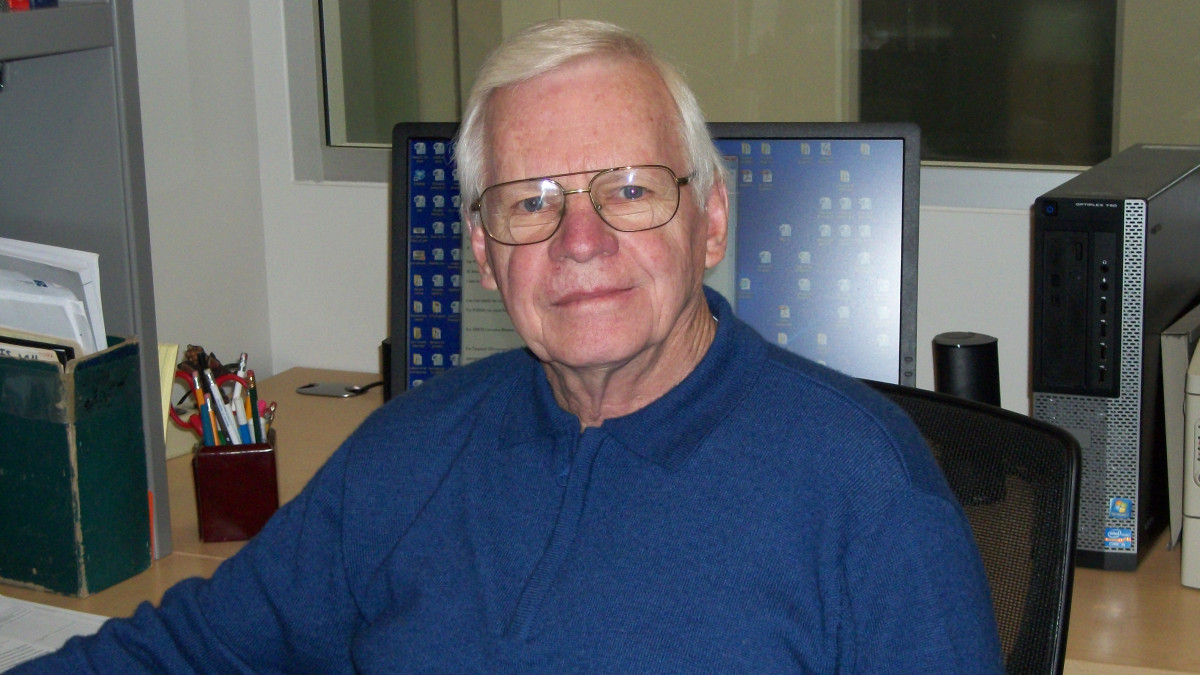 ’62 champ still swimming after all these years
’62 champ still swimming after all these years The Bo(u)lder Question by Maggie Schein
The Bo(u)lder Question by Maggie Schein Lessons in accountability
Lessons in accountability 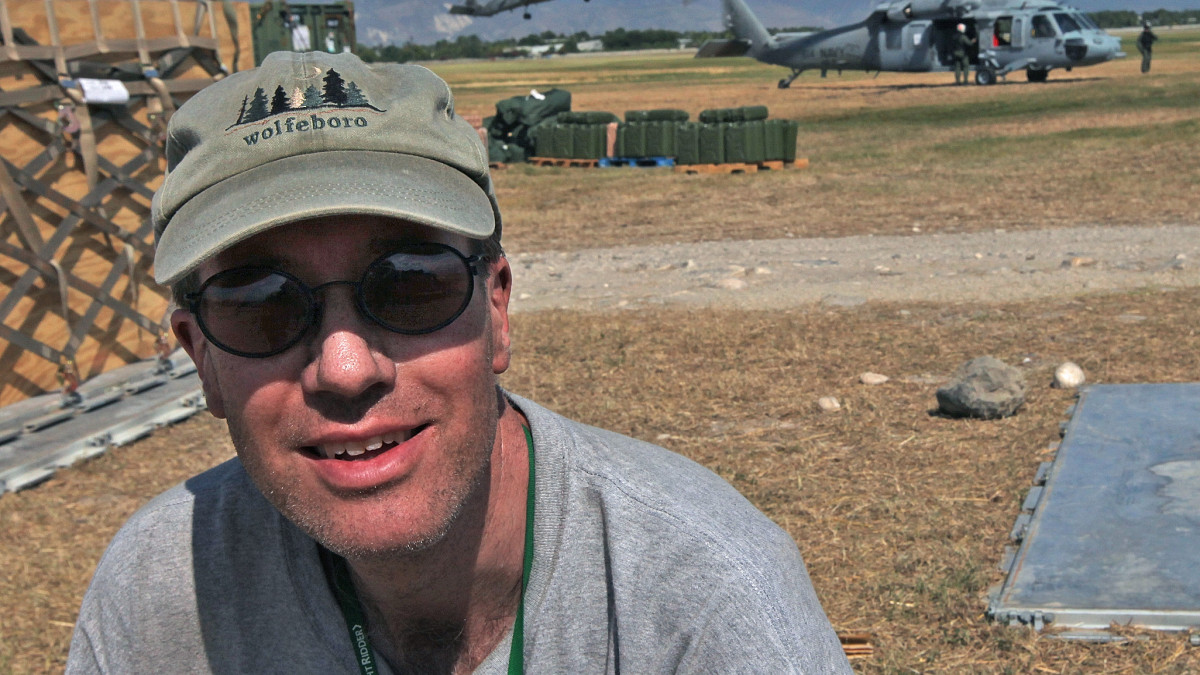 Stories people care about
Stories people care about A watchdog
A watchdog Eye-opening experience
Eye-opening experience Ethical decision-making
Ethical decision-making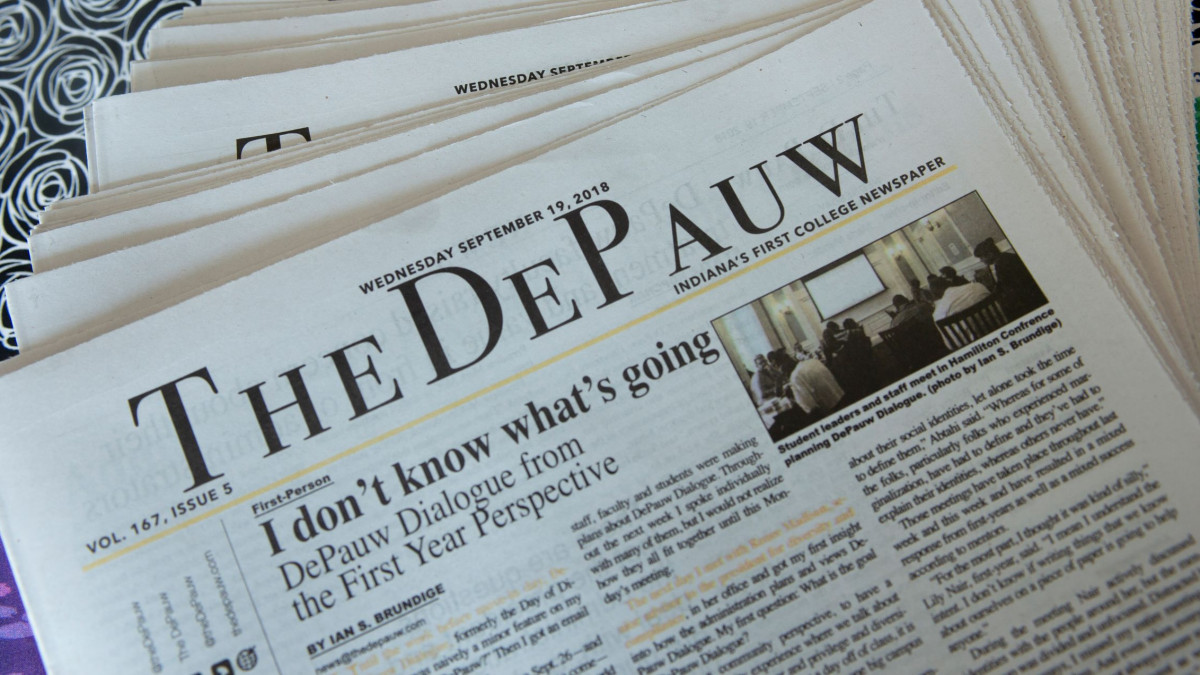 A way to give back
A way to give back Confidence-builder
Confidence-builder A solid foundation
A solid foundation  Collaborative spirit
Collaborative spirit A sense of identity
A sense of identity Freedom to experiment
Freedom to experiment Meeting Jimmy Hoffa
Meeting Jimmy Hoffa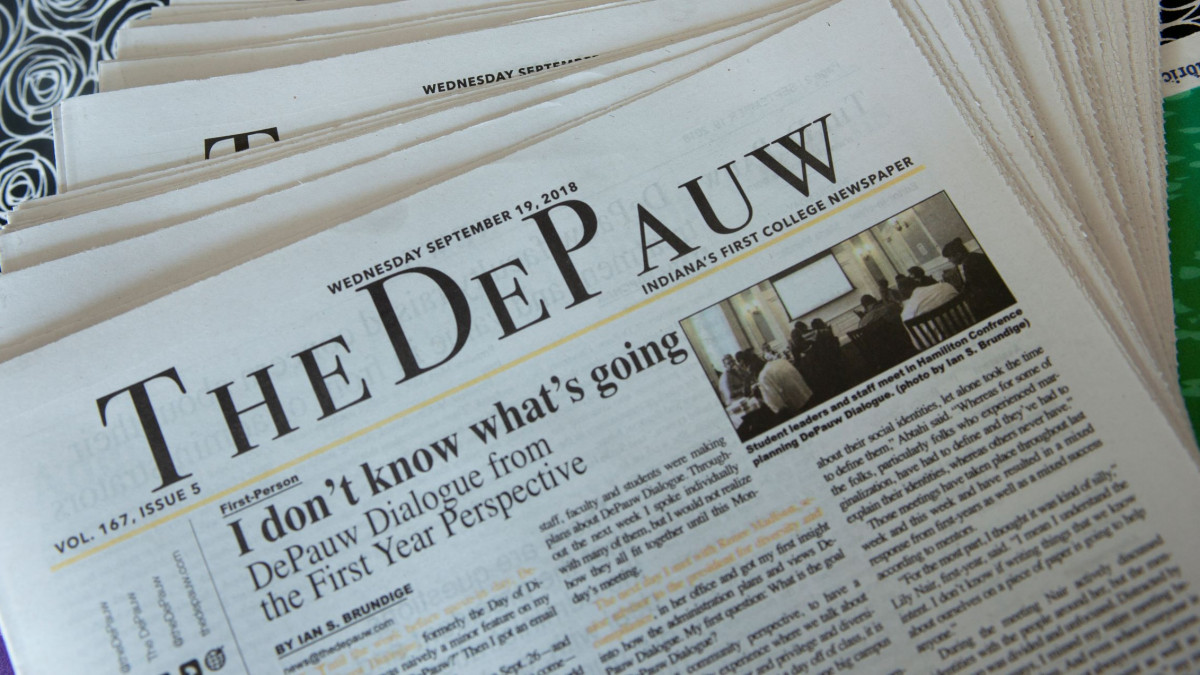 The DePauw at 170
The DePauw at 170 The book seller
The book seller The reader
The reader The publicist
The publicist The children’s book publicist
The children’s book publicist The ad director
The ad director  The sales director
The sales director  The literary fiction editor
The literary fiction editor The nonfiction editor
The nonfiction editor The assistant editor
The assistant editor  The literary agent
The literary agent The illustration agent
The illustration agent The ghostwriter
The ghostwriter The niche publisher
The niche publisher The accidental author
The accidental author The self-published author
The self-published author The children’s author and illustrator
The children’s author and illustrator  The bestseller
The bestseller The fiction author
The fiction author The nonfiction author
The nonfiction author From Inkling to Ink: How a book becomes a book
From Inkling to Ink: How a book becomes a book The memoirist-in-the-making
The memoirist-in-the-making DePauw Magazine - From Inkling to Ink: How a book becomes a book
DePauw Magazine - From Inkling to Ink: How a book becomes a book
DePauw Stories
A GATHERING PLACE FOR STORYTELLING ABOUT DEPAUW UNIVERSITY
Browse other stories
-
Athletics
-
Men's Lacrosse - Tigers Fall to Wittenberg
-
Baseball - DePauw Tops Rose-Hulman in Home Finale
-
Men's Tennis - Pia Chosen NCAC Men's Tennis Athlete of the Week
More Athletics
-
-
News
-
Little 5 makes big splash through philanthropy and service
-
Greencastle Celebrates National Main Street Day with Small Business Breakfast, New Program Launch, and Spring Pitch Competition
-
Hirotsugu "Chuck" Iikubo ’57 remembered as thoughtful leader, advocate for international goodwill
More News
-
-
People & Profiles
-
11 alums make list of influential Hoosiers
-
DePauw welcomes Dr. Manal Shalaby as Fulbright Scholar-in-Residence
-
DePauw Names New Vice President for Communications and Strategy and Chief of Staff
More People & Profiles
-
-
Have a story idea?
Whether we are writing about the intellectual challenge of our classrooms, a campus life that builds leadership, incredible faculty achievements or the seemingly endless stories of alumni success, we think DePauw has some fun stories to tell.
-
Communications & Marketing
101 E. Seminary St.
Greencastle, IN, 46135-0037
communicate@depauw.eduNews and Media
-
News media: For help with a story, contact:
Bob Weaver, Senior Director of Communications.
bobweaver@depauw.edu.